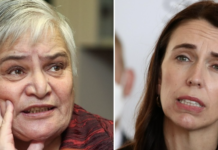Advocates and researchers warn the effects of this lockdown could be worse than the first for many of the country’s poorest families – unless the Government immediately lifts incomes and makes support easier to access.
“We urge the Government to place children at the heart of its current Covid-19 relief policies and substantially increase income support immediately,” says Child Poverty Action Group spokesperson Janet McAllister. “It’s great the Government has already activated wage subsidies but our most disadvantaged families must not be overlooked; people receiving benefits also need assistance with the high costs of lockdown.”
Families are dealing with high lockdown costs due to the halt of food-in-schools programmes, reduced supermarket specials, and increased data and phone use for school and social connection, says McAllister. “Plus annual inflation and food prices were already at record highs prior to the current lockdown, yet weekly core entitlements for sole-parent families receiving benefits are the same as they were a year ago. People were already hurting prior to lockdown. At the moment, this year’s benefit increase is cancelled out by the loss of last year’s doubled Winter Energy Payment for many.”
Barriers to accessing government help are also higher now than they were in the first lockdown, reports Auckland Action Against Poverty coordinator Brooke Pao Stanley.
“In the first lockdown, you could receive multiple food grants, and Work & Income were more trusting than usual, helping to increase people’s confidence and wellbeing,” says Pao Stanley. “We haven’t seen that this time around.”
The closures of all Work & Income offices – similar to the first lockdown – will be causing hardship as not everybody has the digital access required to seek help.
“Why haven’t these issues been fixed yet? This is not the first time we’ve been faced with lockdown – Work & Income knew access would be an issue. Why haven’t they dealt with the problem?” says Pao Stanley.
Child Poverty Action Group and Auckland Action Against Poverty are urging the Government to ease restrictions on accessing hardship assistance, open select Work and Income offices to walk-ins and extend enough extra income to all families so no one suffers ongoing hardship due to lockdown.
“Our research shows that after the first lockdown, financial distress, food insecurity and chronic school absences remained at elevated levels for low-income children for at least the rest of the year,” says McAllister. “Effects pile on top of each other – families still dealing with the issues from previous lockdowns will be hard hit again by this new lockdown, and we are concerned they may have to deal with worse situations now than last year.
“Immediately implementing next year’s planned benefit increases, as a Covid-19 relief measure, would go some way to help but even more is needed,” says McAllister. “Like the lockdown itself we know early decisive action is the best way to ensure children and their families can flourish, free from the toxic stress of pandemic poverty.”






While agreeing with every word here, I suggest that it would be helpful to use plain language. Eg Poor people do not have the money to stock up on noodles or bread or milk or anything, or to even buy sufficient for their families’ needs.
They shop a day at a time, totally dependent upon when they have the cash resources to do so. This means they go hungry during the in between times, and are exposed to higher covid contact risk through having to make far more frequent supermarket trips than more fortunate persons do, or through trying to access charity handouts.
Food deprived children are vulnerable to just about everything, including the future. It’s inexcusable.
Can you people not get with the programme?
It does not matter if children are hungry as long as they are aware that they live in a gender diverse society.
Of what value is it to be healthy, warm and well fed in a happy, secure family if one is not allowed to be a transsexual?
As with the Spanish Inquisition it does not matter what we do to people’s bodies as long as we save their immortal souls.
Besides finding the money to feed poor children means taxing people who donate to political parties.
This is how I know that no-one in government has a clue what it is like to be hungry, or what it is like to be a mother desperate about trying to feed her children. Or how, years on, the memories of the hungry times still linger and haunt – remembering trying to buy one egg at a time, or sending a small boy to the supermarket to buy three slices of luncheon sausage for dinner.
Comments are closed.